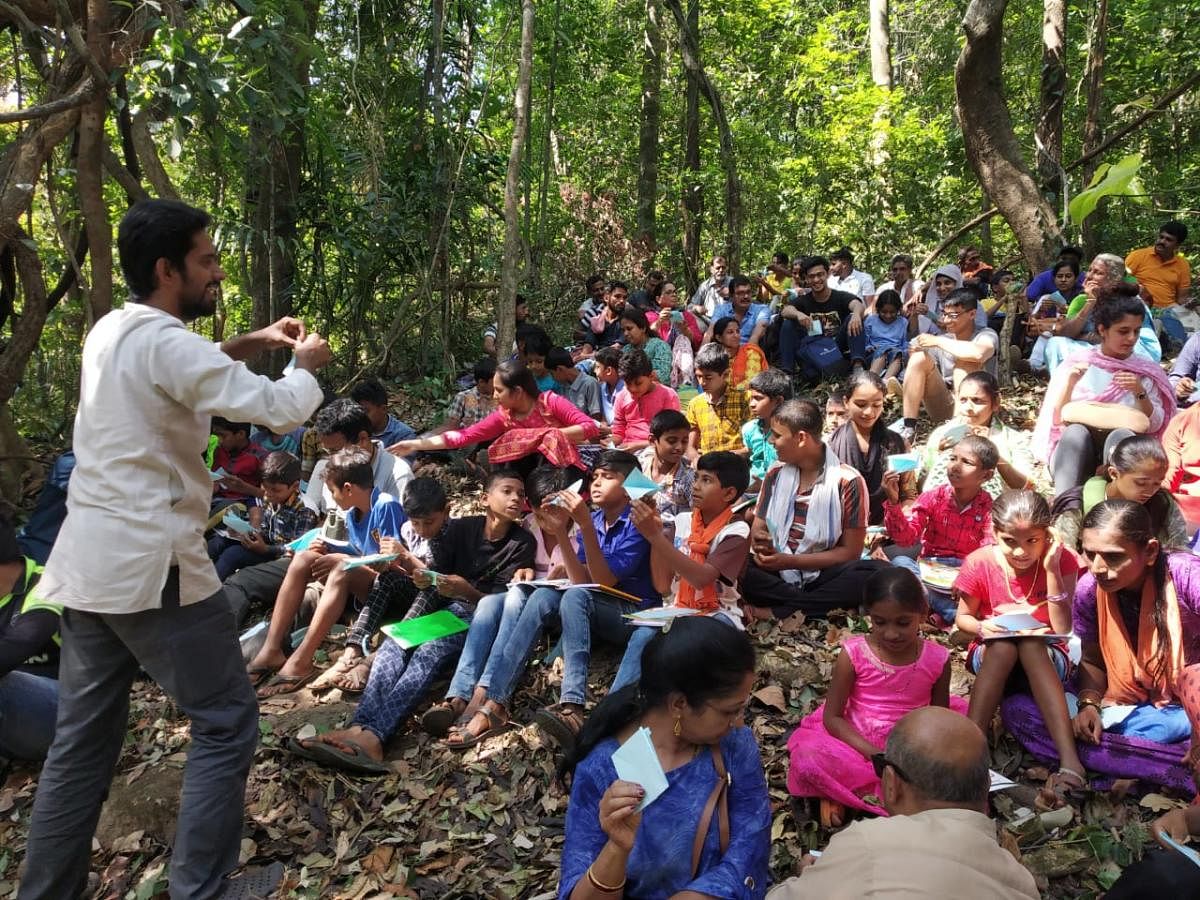A bridge course connects to children in the forest




Right from the time schools were shut during the pandemic, environmentalist Dinesh Holla recognised that children of the forest-dependent communities were among the worst sufferers.
“School is a paradise, a place to make merry with friends and play to the heart’s content,” says Holla, a member of the ‘Sahyadri Sanchaya’ group. Sahyadri Sanchaya is a team of like-minded individuals, who take up conservation and environment awareness activities in the Western Ghats.
Holla has been visiting the hamlets of forest-dwelling communities in the Western Ghats for the past 14 years. During one such interaction in August last year in a hamlet in Yellapura of Uttara Kannada district, he found the children jaded.
Bridging the digital gap
In November, he started Vana Belaku, a bridge course for the students here. Since then, the programme has transformed into a community initiative that helped children continue learning when the schools were closed.
The five-hour-long Vana Belaku programme is held over two days and encourages critical thinking through informal learning activities like craftwork and life lessons.
For instance, a kite-making session was used to demonstrate how a fallen kite can rise again. “Failures are nothing new but we must learn to rise from our failures like the soaring kite,” Holla said.
The only academic activity in the camps is the emphasis laid on neat, legible handwriting, says Deepika, a volunteer. Holla explains that a special thrust is given to improving handwriting as an examination invigilator had told him how poor handwriting cost students marks.
After the camp, Holla used to go to houses in the haadi (hamlet) in order to understand the situation of students at home.
Deepika, who had attended 24 out of 34 Vana Belaku camps, says the experience was an eye-opener.
At her first camp in Joida in Uttara Kannada district, she recollected visiting a house that had no electricity. Harsha D’Souza, another volunteer, helped them get solar power.
At the picturesque Ambali village, children shared the experience of seeing a python inside their classroom and a tiger outside their school compound. “Their coexistence with nature left me amazed,” Deepika said.
Holla recollects distributing chocolates to children in one such camp. The children folded the wrapper neatly and kept it in their pockets. They said the wrapper would be thrown in the wastebasket kept at home.
Holla says if these children go on to join the forest department, the ongoing conservation efforts will get a big boost.
Giridhar, a volunteer with the programme, says Vana Belaku helped him realise the need for a platform to help give exposure to the world outside of the forests. This community initiative does precisely that.
Deepika says her brother Arjun John D’souza and Disha Prabhu have planned to launch a website after seeing the response to her social media posts.
“For those keen on contributing, the website will bring them closer to the cause,” informs Deepika.
The bridge course has indeed come as a ray of hope for schools with students tucked deep in the woods.
Holla reveals initially being worried over the response of the community but their fears were put to rest when parents also participated in the camps, joining the children in the activities.
Over a period of three months, camps have been organised in Ankola, Yellapura, Joida, Anshi (Uttara Kannada district), Shishila, Kajaka, Makkiperla (Dakshina Kannada district), Balur, Malemane and Mavinakatte (Chikkamagaluru district).
The schools here might soon get the furniture as some companies have shown interest in improving the infrastructure here.
Deccan Herald is on WhatsApp Channels| Join now for Breaking News & Editor's Picks